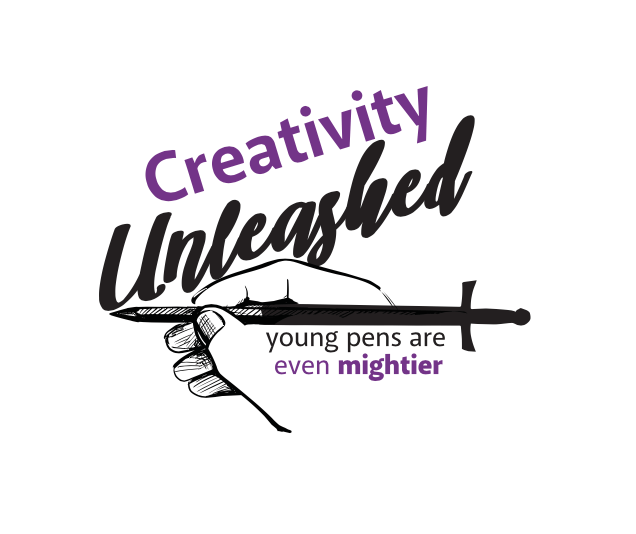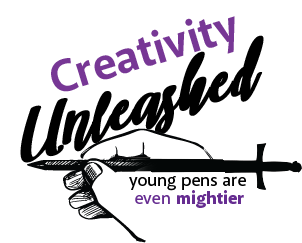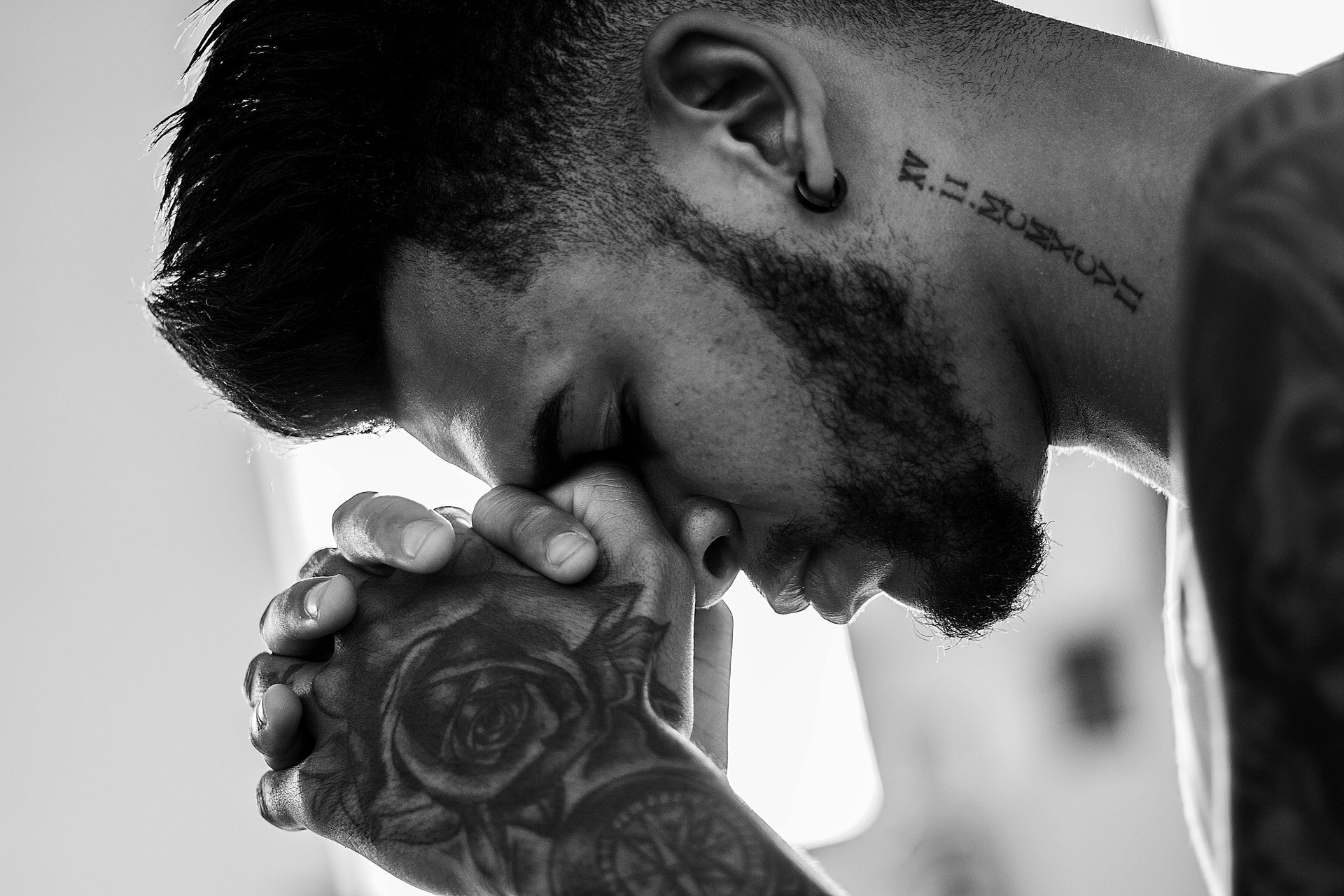The Knife or the Idea
Written by Aryanna Zeigler from Russell Sage College — Troy — NY
Which came first, the knife or the idea? This bounces back and forth in his mind now as he looks down at the blade in his hand. It must be clean now days later. His mother must have gotten to it or rather ordered someone else to do so. But with it so close again it still feels stained. He brings it closer to his eyes without thinking – is that blood there? A string of fiber caught in the handle? Has it been dulled at all?
It was unlikely. He only used it once. There was only one time it entered a body and there was only one time it left. He thinks that before that, it may have been a gift. It may have sat unassumingly on the wall or a table as it was displayed to those in his household. It may have been sitting there when this all began. That is how he found himself here in the first place. Which came first?
Does it matter if the knife had been there before they began their planning, as they argued over details and finalized the ultimate act? Does it matter if it had been there for years if he had never noticed it until now? If the first time he truly paid it any attention was the first and only time he used it?
A laugh begins to bubble up and out, and it escapes before he can stop it. This knife – this gift – would have been given to him to thank him for his work. Had he done any work worth being gifted this at that time? It feels unlikely. It feels as if he hadn’t done a single thing before using it. He wonders if he will ever do another thing again.
When he found himself home again afterward, his mother was losing the fight to hide her glee from him. He could see it in her eyes if not her face. She knew as he did that a somber mood was expected, not just when facing the public but when facing the others. That if they truly believed in why they did this, they would not be gleeful after completing the act. But the two of them also knew that she did not hold that belief, that she had her reasons. He wondered if he believed it, still. Wondered if it mattered at this point. Which came first, which came first?
Before being led home, he was told that what they did was a great and important thing. That he was a hero of the republic. A savior. He would have believed it more if it were not coming from bloodless faces and shaking voices and darting eyes. That was probably why he almost believed it when it came from Cassius, so steadfast in the belief that they did the right thing. Did he still subscribe to that original root idea? Had he ever? The knife or the idea, which came first?
He wishes that he could remember where the idea began. He had a vague sense of when it was first said out loud, voices hushed with fear even in locked rooms. He wants to remember how he reacted to it initially. Was he surprised? Disgusted? Angered?
Resolved? Or, was there a part of him that thought of every slight, intentional or otherwise, and let that wounded pride take the lead in his actions?
In his mind, a scene plays out and he does not know if it is memory or invention. He sees him sat down with Cassius’ intentions finally laid out in front of him, no more attempts at subtle needling and insinuating. He sees himself considering and thinking it over, already making slight changes to wordings and dates and actions, all hypothetically, never committing mentally or emotionally or vocally, not yet. And then he sees himself look beyond Cassius, to himself – no, to the knife. The blade that once hung on a wall or sat on a table and was once a gift and now sits in his hand, beneath his eye, is now an extension of himself and the tool of a killer. He sees himself, this memory or mirage or manifestation of guilt, sees him look to the knife and slide it into his increasingly less hypothetical plans with ease. Which came first, which, which, which?
He had never been a warrior. It was never expected from him. His mother wanted him to lead – she wanted power and that was the easiest way to get it. Everyone else wanted him to be a symbol. They wanted in their corner the name of his father and his family line, but they did not want him to take advantage of it for himself. They would all be happy then, his mother and the rest of them. They had all gotten what he wanted. But what did he want? To lead, to gain power, to gain peace? Which? Which? Which?
He tested the weight of the knife in his hand. It felt heavier now than it ever had in use. In wielding it, it had felt weightless. It was as if someone else had been guiding his hand – his mother's face flashed before his eyes for a moment – which which which? It had been as if he had taken a step back from his flesh, had watched the spirit puppeting him create the wound, and came back just in time to feel the warm blood staining his hands begin to cool. Just in time to feel someone over his shoulder, to turn and see Antony’s white face in the doorway.
For a moment then he wonders - which, which, which – if he should not have argued against killing Antony, as well. If it would have been perhaps more merciful to remove him from the equation entirely rather than leaving him with the knowledge that he failed in the only job he ever seemed to excel at – killing for Caesar. He wonders what exactly stalled his hand and swayed his judgment if it were simple duty or something else. Which which which.
He does not wonder, if he had to choose again if he would once more spare Antony. He knows he would.
Would he try to recruit him, then? Sway him to their side if at all possible. He had brought it up to Cassius once. He suggested it when the other man had once again appealed to him the case of including adding Antony’s name to the list beneath Caesar’s. His response had been swift, and his voice held no lack of exasperation.
“You do not extend your hand to a rabid dog after cutting down his master. You turn the blade to him next.”
But he could not help but indulge in the thought. Now that all that Antony felt for him was hate, it felt safer. There was no possibility of it occurring and there was no risk of immediate retaliation for him going to Caesar with the plan or, worst of all, unflinchingly rejecting the idea. No, of unflinchingly rejecting Brutus. Of standing face to face with him and looking him in the eye and telling him no. He had never been able to handle rejection from Antony. Spoken or inferred, it had always made him impulsive and angry in a way that he was so rarely familiar with.
But now that there would be no rejection, now that the possibility of it had grown into war, he let himself sit with that original idea. He let himself indulge in an Antony that would have said yes. In a world where he was not standing alone now with only a blade cleaned at his mother’s order of the blood, she had guided him into spilling with it. A world where he was instead with Antony, standing or sitting or lying together. A world where he did not have to reckon with his act of taking a life, because Antony had done it instead, and he was so very familiar with the business of it already.
Once he began, he could not bring himself to stop. Would Antony be torn apart by the act? Would he have to comfort him for what he did, assure him that though he had cut down the man who cared for him as a father, he was a savior of the people and the republic, and Brutus, a hero? Or maybe he would have to coax emotion from him, maybe the other would close up his feelings on the matter within, maybe Brutus would have had to find a seam and help them spill out so they did not drown him from the inside. Which which which which–
He startled at a noise from a neighboring room, towards the entrance of the villa. His mother’s return, perhaps. Or a conspirator, Cassius perhaps, arriving to gloat or reassure. Brutus’ outward expression made them lean more in that moment. Whichever, whichever. Which, which, which.
He set the knife down on a table. He momentarily spares a thought over whether or not that was the table he originally grabbed it from, but quickly lets it go. He is beginning to realize it does not matter. Where the knife sat, if it preceded the idea, of the idea was his or his mother's or Cassius’ or some other, aging Senator’s. If Antony would have joined, if he would have turned him into Caesar or spared him, if the rejection would have killed him if he wished he had asked and had been turned down and it had killed him and he did not have to ever find himself in the position he was in now.
None of it mattered now, anyway. He made his choice. He saw that now.



